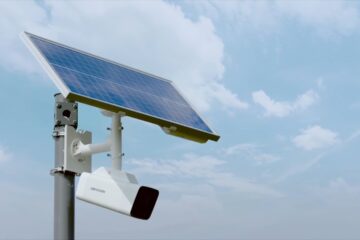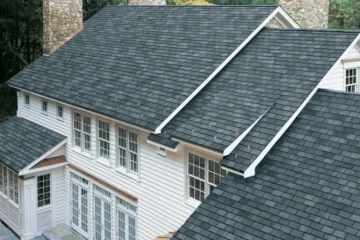What Effect Does Rain Have On The Water In My Swimming Pool?

A pool is a sound investment that increases the value of your property tremendously. It is also a great place to make memories with your friends and family.
But rains can hinder these plans easily. Large amounts of rain can disrupt the chemical balance of your pool which can lead to a host of problems. Rain is formed when evaporated water leaves the earth, leaving behind many chemicals as solids on the surface of the earth.
As rain falls through the clouds, the water gets mixed with the chemicals and various other pollutants before hitting your pool. These pollutants may or may not include spores, dust, and phosphates that are present in the atmosphere.
When heavy rain pours down on your pool, not only does it increase the level of water in your pool, it also disturbs the chemical balance. If the water in the pool gets high enough, the skimmer can stop functioning altogether. Debris like bugs and leaves can easily accumulate at the bottom of the pool. If rainwater gets into your pool, you should definitely backwash the pool filter.
pH fluctuations
When rain leaves the cloud, it is neutral or has a perfect pH that is 7, but as it falls down, it absorbs pH contaminants along the way. A low pH rain can alter the pH of your pool very easily, which can lead to many nuisances. If the pH is not too low, but the rains continue for a few days, then also you have the risk of your pool’s chemical balance changing.
In both of the aforementioned cases, you will have to increase the pH of your pool so that it can remain neutral. Acid rain absorbs carbonic and sulfuric acid from the atmospheric gases available in the air. In most cases, the rain might not be highly acidic but low enough to alter the chemical homeostasis of your pool.
In any case, if the rains are acidic in your region, then you will have to raise the pH of your pool.
Alkalinity
Rain will definitely lower the total alkalinity of your pool over time. You will then have to raise the alkalinity of the pool itself to balance the effect. In most cases, the total alkalinity of rainwater is next to zero, but heavy rains can lower it by 5-10 ppm per day.
Low alkalinity combined with low pH can make a hostile environment in the pool’s ecosystem. It will be corrosive and will damage the metal part and anything near it. Things like ladders, rails, and pool lights do not react well to such an environment.
Not only that, corrosive water can damage the equipment it flows through too. Filters and heat pumps are at risk if you let the alkalinity levels drop. If you have a vinyl pool, wrinkles can appear and masonry surfaces can get random etchings on them. When a metal reacts with low alkalinity water, the water can get cloudy and discoloured.
But the good news is that all these can be avoided by adjusting the total alkalinity, pH, and calcium hardness in the water.
Heavy Rains and Calcium Reading
Pool water is on the softer side of the spectrum and rainwater has zero hardness. When rainwater enters the pool, you essentially get pure water into the system. This means the hardness of the water also decreases.
You will need to introduce calcium into the system if the pool water hardness decreases.
Should you add more chlorine?
As mentioned earlier, rainwater dilutes everything that is there in the pool. Whether it be calcium or chlorine, with the addition of rainwater, the chemical balance gets disturbed.
As rainwater contains no chlorine, the chlorine concentration also takes a hit. You can add a bit of chlorine before the rain even gets into your pool. As a smart pool owner, this is the best thing you can do when heavy rains are forecasted.
Algae
When rain ascends from the sky, it may not have algae spores, but it can provide the perfect conditions for algal growth. The organic content of your pool increases, and as the disinfectants in your pool dilute, algae can grow easily.
Add algaecide to your pool as soon as heavy rains are forecasted. This will not only protect your pool but also make sure there is no algal growth. Algae, though harmless, can be a pain to get rid of.
Make sure to add algaecide and other disinfectants to your pool on a regular basis during heavy rains. Also, do not let the pool water remain stagnant if there is no cover on top of it. Routine maintenance and prevention will do you wonders whether it will be rainy or sunny weather.
How to prevent these?
Pool Covers
These are a great way of protecting your pool from the majority of rainwater. Whether it be automatic or manual, a pool cover can severely limit the chemicals that your pool needs.
If you have pets and kids, it is best that you go for an automatic pool cover that is hard. This is because they can withstand the weight of humans and will not engulf you like manual pool covers.
Overflow
Do not let water stay stagnant and make sure you remove the excess water as soon as you can. This doesn’t let the rainwater mix up with the pool water and does not dilute it. Only do this when there are heavy and continuous rains in your area.
Debris
Rain will bring a lot of unwanted debris into your pool’s system. Whether it be twigs, leaves, or dust, it is best that you remove them either manually or through filtration. Use an automatic vacuum to clean out the pool and prevent these things from settling into the pool.
Skimmer
Your skimmer can also collect a lot of debris and you should check it from time to time. Accumulated debris can hinder its function and cause more problems.
You can always check with nearby pool owners as to how they deal with rains and what all steps they take. Experienced pool wonders will be able to guide you and give you tips about the things that have happened to them.
If you see any kind of discolouration of the water turning green, it is best to take action as soon as possible. Most of these problems, when nipped in the bud, do not do much damage, but once they get worse, controlling them can be a problem.
Whether it be pH, chemical balance, alkalinity, debris, or algae growth, regular maintenance can take care of all these problems. When heavy rains are forecasted in your area, try to take preventative measures so that your pool remains in great shape. Always remember prevention is better than cure. If you can take care of the problem in the early stages itself, then that is the best.
Always contact experienced pool builders for solutions, too, if you cannot figure things out yourself. We will be more than happy to answer all your questions and clear all your doubts. Our experts will give you step-by-step instructions as to what you can do to get rid of the problems. If you are more of a reader than a talker, you can visit the blog and see what tips we have to offer. Contact us now!





